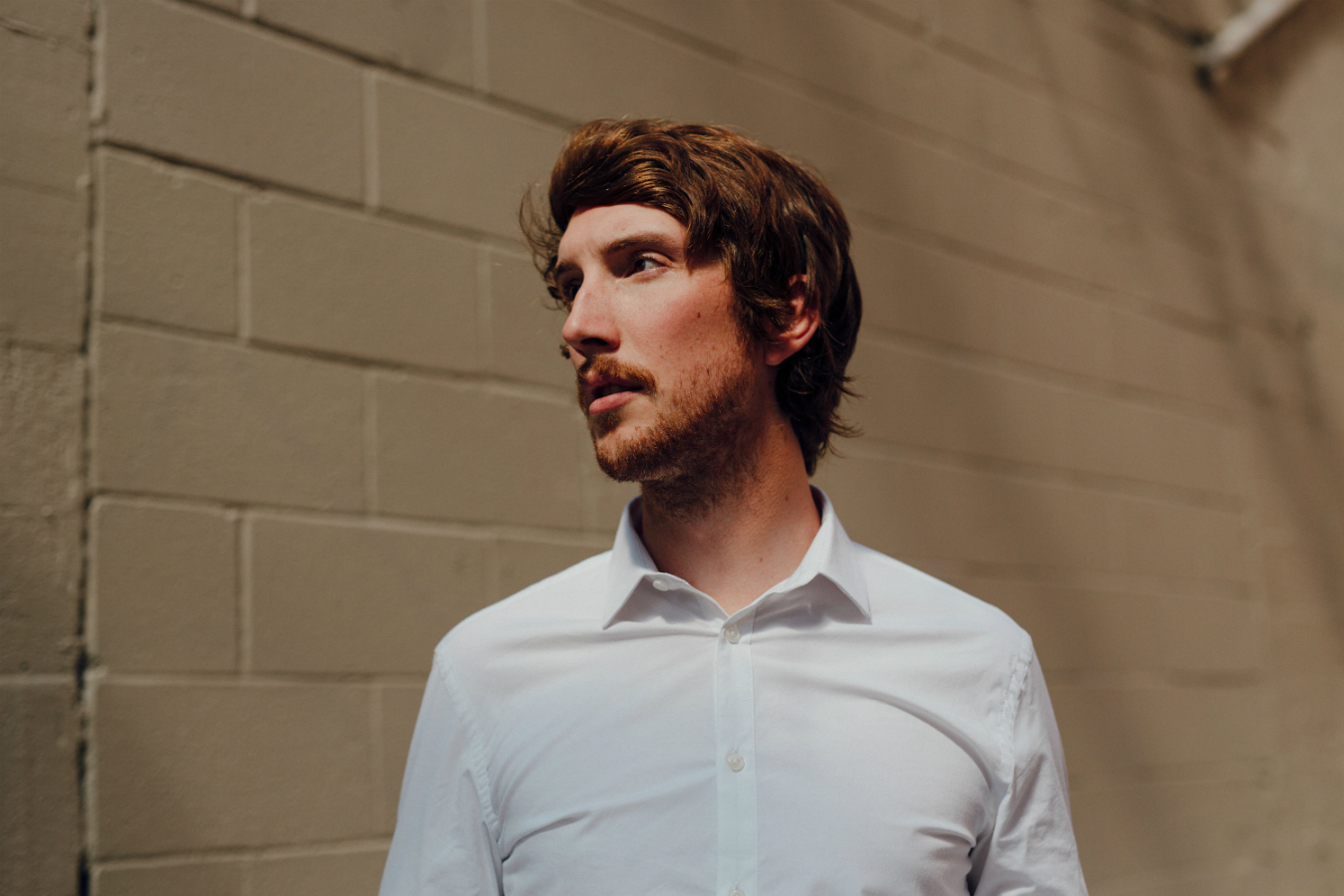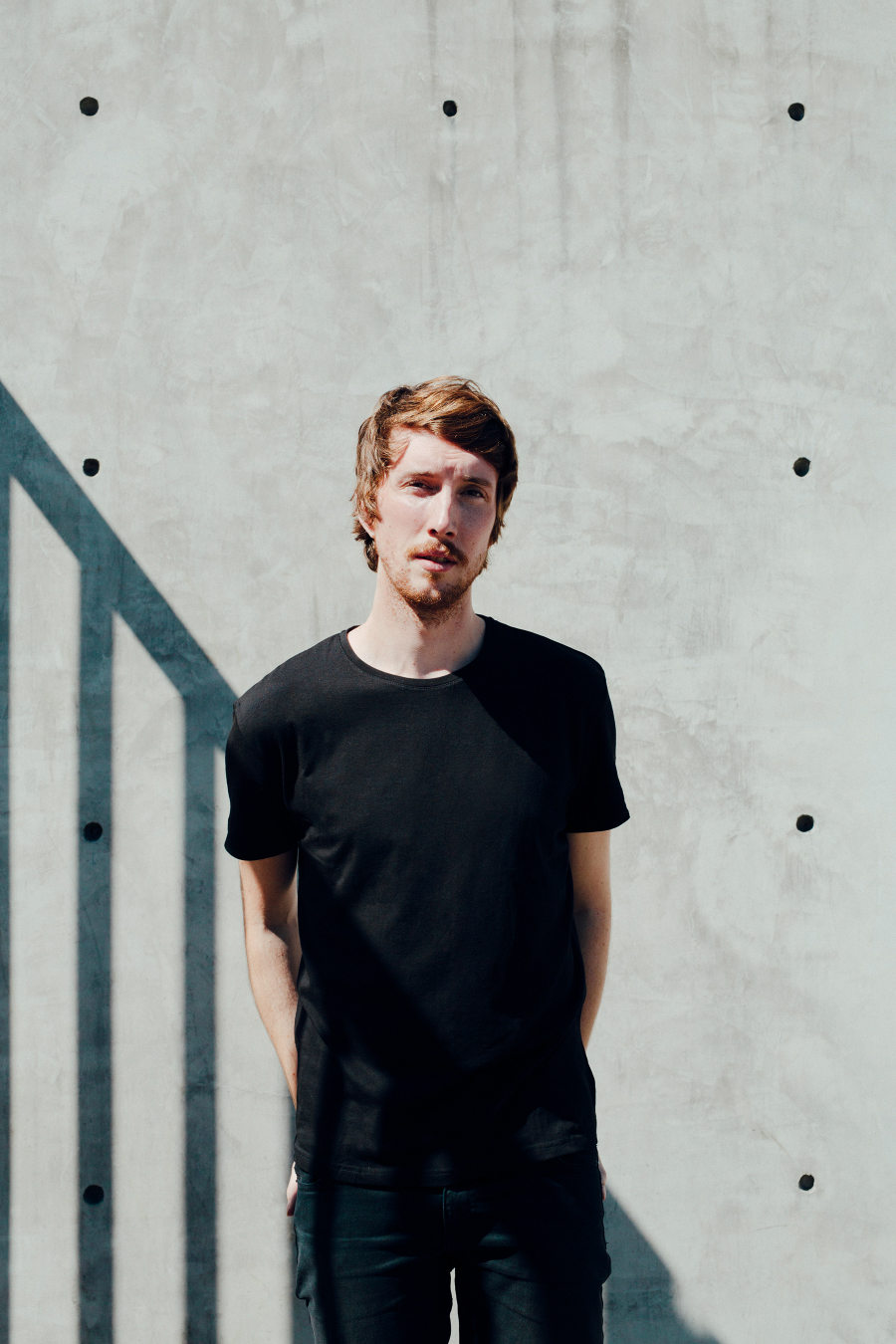Aidan Knight has been reading a lot about confirmation bias.
“I’m no expert,” the Canadian musician says, talking over the phone from Berlin. “I’m trying to understand people, why we are so different; everything from politics to religion to philosophy. I’m trying to understand the other side.”
If this sounds trite, it shouldn’t. Knight seems to be one of those rare creatures in our post-everything world who doesn’t seem to possess an insincere bone in his body. Reflective and almost doe-eyed, Knight has idealistic qualities that come through strangely clear in his most recent release, Each Other. Fresh off being on the road with Mercury Prize winners Villagers, Knight is currently on an extensive tour—a tenure speckled with sold-out dates and in-studio sessions with the likes of CBC’s Q and plenty of BBC Radio airtime. His third full-length album picks up some of the crumbs left by 2012’s Small Reveal (considerate, personal) to arrive somewhere more self-assured, grander, and fully developed.
Knight’s newfound interest in confirmation bias—in short, the tendency to look only at information that confirms one’s own pre-founded conclusions—was grown out of his change of scenery as a recent dispatch to Berlin from Victoria. “Since I’ve been here I’ve been out, exploring new things,” he says. “I think when you know something really well, when you have your lane and you’re staying in it, you’re missing out on a lot of things.”
There’s a similar effort to signal out of the confessional singer-songwriter box and steer towards the horizon on Each Other. Written over the course of a year and a half, the album’s journey wasn’t complete without the almost mandatory “scrap-it” moment. “I thought maybe music wasn’t good for me anymore and that I should walk away from it,” Knight says of his momentary lapse in confidence. “I don’t know if there was this exact point of realization, but I felt this is what I want to do. This is something I think I’m at least marginally talented at and, at best, pretty good at.” Modesties aside, Knight eventually found a reason to keep going: “In the same way that I like to learn and empathize with people of different opinions, it’s the learning period that is really important to me. And making music is really important to the way I see the world.”
Added to the mix this time around is producer Marcus Paquin, whose discography includes Arcade Fire’s seminal The Neighborhood and The National’s universally praised Trouble Will Find Me. Even with such hard-hitting chops, his influence comes through in more covert ways. “You don’t hear so much of him. He’s not interested in being the controlling director,” Knight says. “I always worry that my references make me come off like an old white guy, but he’s more Robert Altman than Quentin Tarantino.” Paquin’s influence is still audible; the pensive and swelling groove backing Knight’s vocals on the single “All Clear” is reflective of the producer’s big-band bravado.
Still, it’s hard not to see Knight as the protagonist through all of this. The crush-worthy, sweltering “What Light (Never Goes Dim)” has Knight’s voice and narrative as the guiding beacon as he confesses to not being in love with the sound of his own voice before launching into another, more vulnerable confession. But it’s not all deep and brooding. Each Other has Knight trying on different hats and looking pretty good in each of them. Playful arrangements abound, reminiscent of Sufjan Stevens; his lyrics grow blurry and strange, also borrowing plays from Built To Spill’s Doug Martsch.
The album’s strengths—Knight’s newfound directness and optimism—are traits perhaps gleaned over time. “I started working on [the first release] in the beginning of 2006—I would have been 20 years old,” he says. “And now I’m 29, and I’m really looking forward to 30 and beyond. I kind of feel like I learned quite a bit in my twenties, and it’s nice to be able to see how far I came from there.” Knight pauses to reflect on what he just said, then adds: “I think that’s a really cool part of life. I hope you agree.”
Photos by Brian Van Wyk.
_________
Still listening? Read more of our Music coverage.










